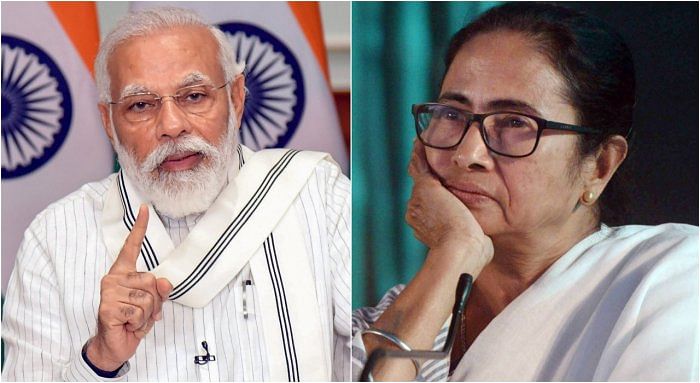
Mamata Banerjee's proposed "no vote for BJP" in the 2024 Lok Sabha polls is a version of the anti-Congressism that socialist leader Ram Manohar Lohia pioneered in the 1960s. Psephologists later coined the term "Index of Opposition Unity", or IOU, to explain the electoral battles that characterized this anti-Congressism. However, Banerjee calls her strategy simply "khela hoga", or the game is on.
The IOU phase lasted from the mid-1960s until the 1989 Lok Sabha polls. During that period, political parties of nearly all hues, from the communists to socialists, the Jana Sangh, its subsequent avatar of the BJP, splinters of the Congress and eventually some of the regional parties, played their parts in this IOU.
However, the communists, socialists and those in the Jan Sangh did not carry the baggage of power. The rootedness of their leaders, their frugal transparent personal lives were in contrast to the perceptions that people by then had formed of most ruling Congress leaders.
Unlike the current opposition, those who battled the Congress at its height had beaten the ruling party in the people's hearts and minds before they started defeating it in the electoral arena. It is a factor that the BJP, even at the height of its power in the last seven years, has found challenging.
It has had few answers to opposition leaders perceived as rooted and credible - Nitish Kumar in 2015 in Bihar, Arvind Kejriwal in 2015 and 2020 in Delhi, Banerjee herself in 2021 in West Bengal, or even a Naveen Patnaik in Odisha.
Therefore, is it Banerjee's plan to dissuade Congress leader Rahul Gandhi from making the 2024 Lok Sabha contest a one that is primarily between himself and Prime Minister Narendra Modi? Rahul Gandhi achieved that in 2019 but miserably failed in his ultimate objective of defeating the Modi-led BJP.
Banerjee said that she does not want to be the leader of any such federal front against the BJP, and the parties would resolve the question of leadership later. She said public perception could change quickly and cited Indira Gandhi's defeat at the hands of the Janata Party in 1977 and Atal Bihari Vajpayee's loss in 2004. Few had indeed expected even weeks before those elections that Indira Gandhi or Vajpayee might lose.
But there is a subtext to what Banerjee said. In neither situation did the opposition have a declared prime ministerial face. In 1977, the Janata Party was a coalition of leaders who had come together weeks before the polls. Neither had the Congress projected a leader against Vajpayee in 2004.
A reason that could help Banerjee's strategy in 2024 is the continuing decline of the Congress party in several states. The changed scenario could allow strong regional parties one-on-one fights against the BJP. West Bengal, Andhra Pradesh, Odisha and Telangana are examples of this.
But would Congress agree to such a strategy? After all, it wasn't the BJP that weakened Congress in several states since 1967. The socialists and Charan Singh's Lok Dal accomplished that in Uttar Pradesh and Bihar. The communists did it in Bengal and Kerala, and the regional parties in states like Andhra Pradesh, Tamil Nadu and Assam chinked Congress citadels.
Also, Congress knows it has seldom recovered the space that it has ceded or lost to regional parties. It is now one of the smaller allies of regional parties in Tamil Nadu and Bihar, and a similar fate stares it in Maharashtra.
But it has also proved to be the weakest link in fighting the BJP since 2014. In 2019, the Congress won as many as 39 of its total 52-seats against the Left or regional parties. The BJP blanked out the Congress in nearly 200-seats where their candidates were either the winner or runner up.
Thus, Congress will have to sacrifice its ego and cede space if IOU has to become a reality in 2024. The Congress has already resigned itself to be a minor player in West Bengal and Tamil Nadu. Can it do that in states like Odisha, Telangana, Andhra Pradesh, and Maharashtra?
At the same time, can it prepare to put up a sterner fight in the 175-seats where it and the BJP will have one-on-one contests? These are seats in Jammu, Punjab and Haryana, Himachal Pradesh, Uttarakhand, Rajasthan, Madhya Pradesh, Chhattisgarh, Goa, Karnataka, Jharkhand and the Northeast.
The test for Congress will come in the forthcoming Assembly polls in Uttar Pradesh. The Samajwadi Party has ruled out any alliance with Congress. But there are suggestions that the Congress party should unilaterally announce that it will not contest more than 40 of the 403-seats to do its bit for the index of opposition unity.
If that happens, the khela of the IOU would indeed be on.